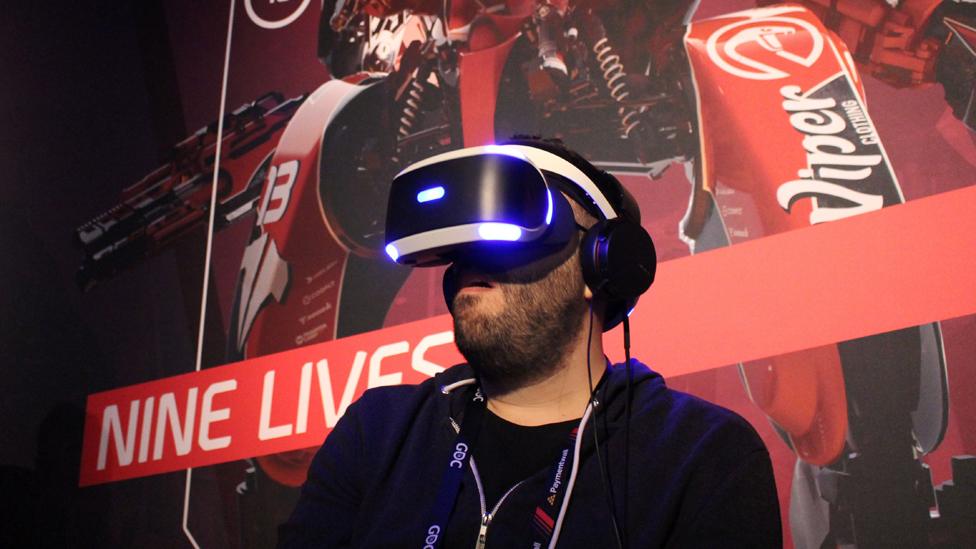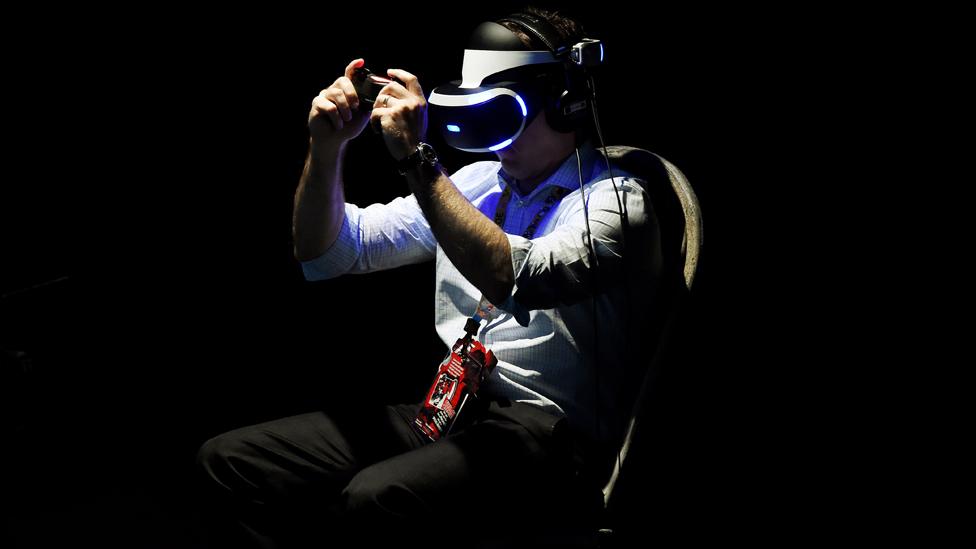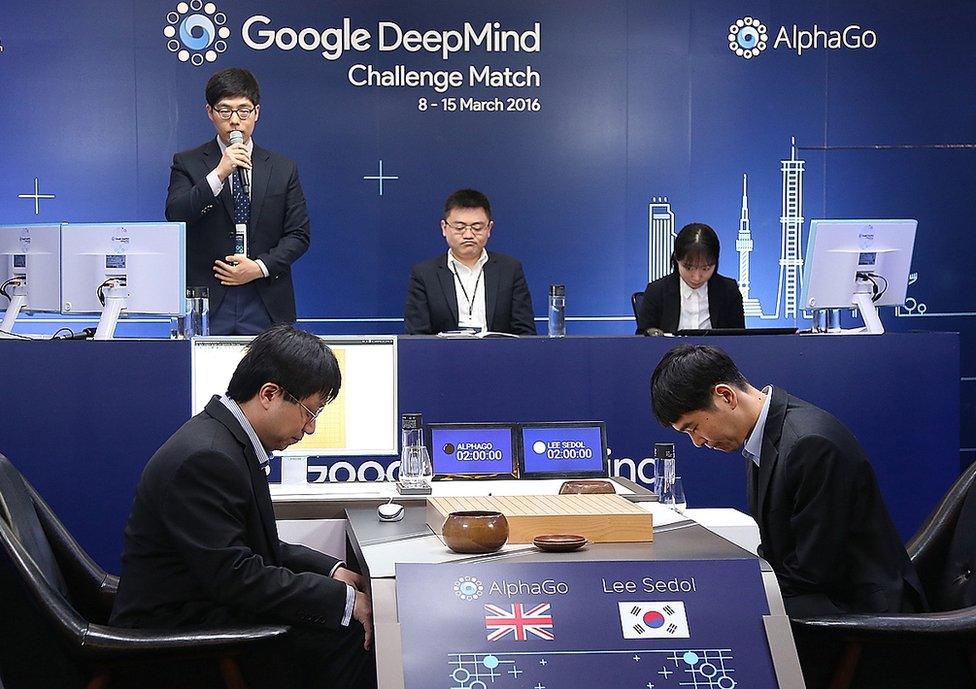Tech Tent: VR, AI and eSports
- Published
- comments

On this week's edition of Tech Tent we look at two visions of the future of gaming, and we ask whether we should be worried or excited by the latest advances in artificial intelligence.
Sony stakes its VR claim
Finally, after all the hype and excitement, consumers are about to get their hands on virtual reality headsets - and we will find out whether there really is a market for this technology. Oculus Rift and the HTC Vive are both released in the next few weeks, and at the Games Developer Conference in San Francisco Sony unveiled its launch date and price.
While Playstation owners will have to wait until October to get their hands on the Sony VR headset, they will pay far less for it than for a Vive or Oculus setup. With nearly 40 million PS4 owners around the world, there's a ready-made market for Sony's offering, so by Christmas it's a fair bet that it will be the leader in VR.

Mind you, while there is now a huge amount of experimentation around VR and 360 degree video (see last week's BBC Click for example) there is still confusion about how it will be used beyond gaming. At a launch event for Nokia's Ozo 360 camera last night, I was shown a number of demos filmed with the device.
I stood next to the vocalist as a band performed, watched as a bear approached a group of nervous people at a campsite, and saw trainee astronauts learning about weightlessness in a swimming pool. The VR headset meant I could choose my own perspective on each scene, but once the novelty wore off the question remained - what is this for? Still, music producers, moviemakers and educationalists are all now producing 360 and VR material, so hopefully they will find an answer to my question.
AI - friend or foe?
At the end of a week where Google's AI program AlphaGo defeated a champion Go player, the artificial intelligence community is discussing what this triumph of machine over man means. I visited Microsoft's UK research lab in Cambridge where a number of artificial intelligence projects are under way , including one experiment using AI in the game Minecraft and another where a program examines scans of brain tumours.

Google's AI program beat a champion Go player
The man who runs the lab, Chris Bishop, says it's wrong to paint a dystopian future in which machines gradually replace us as they get ever smarter. Instead he sees AI as a collaboration between humans and computers - for instance doctors using the brain tumour scanning program to assist their diagnoses rather than replacing them.
"We need to talk instead about a partnership in which machine intelligence and human intelligence work together," he says. "It's the case today, and will be the case for some time to come that the capabilities of machines, the capabilities of humans are different and complementary and if they work together they will be stronger than either of them alone."
Incidentally, for a different view, have a look at this piece from Tom Chatfield in the Guardian, external. He argues that in designing AI systems, we humans are making too many concessions to inflexible computers.
Watching as they play
Back to gaming and we look at the boom in a phenomenon which is familiar to anyone under 25 but a mystery to the older generation - watching video games online. The big player in the live streaming of video games is Twitch, which was bought by Amazon 18 months ago. But we hear from a rival, Ian Sharpe, who says his Azubu streaming service has a different approach. While Twitch lets anyone become a broadcaster, playing anything from Call of Duty to Minecraft, Azubu is more focused on professional eSports.
Last week it signed a deal with the Electronic Sports League to stream exclusive content from esports tournaments - and Ian Sharpe tells us that this is going to be a new boom area for media firms looking to reach those elusive "millennials" who don't watch boring old telly.
Tune in to Tech Tent on the BBC World Service at 15:00 GMT for all that and more or catch the podcast later.